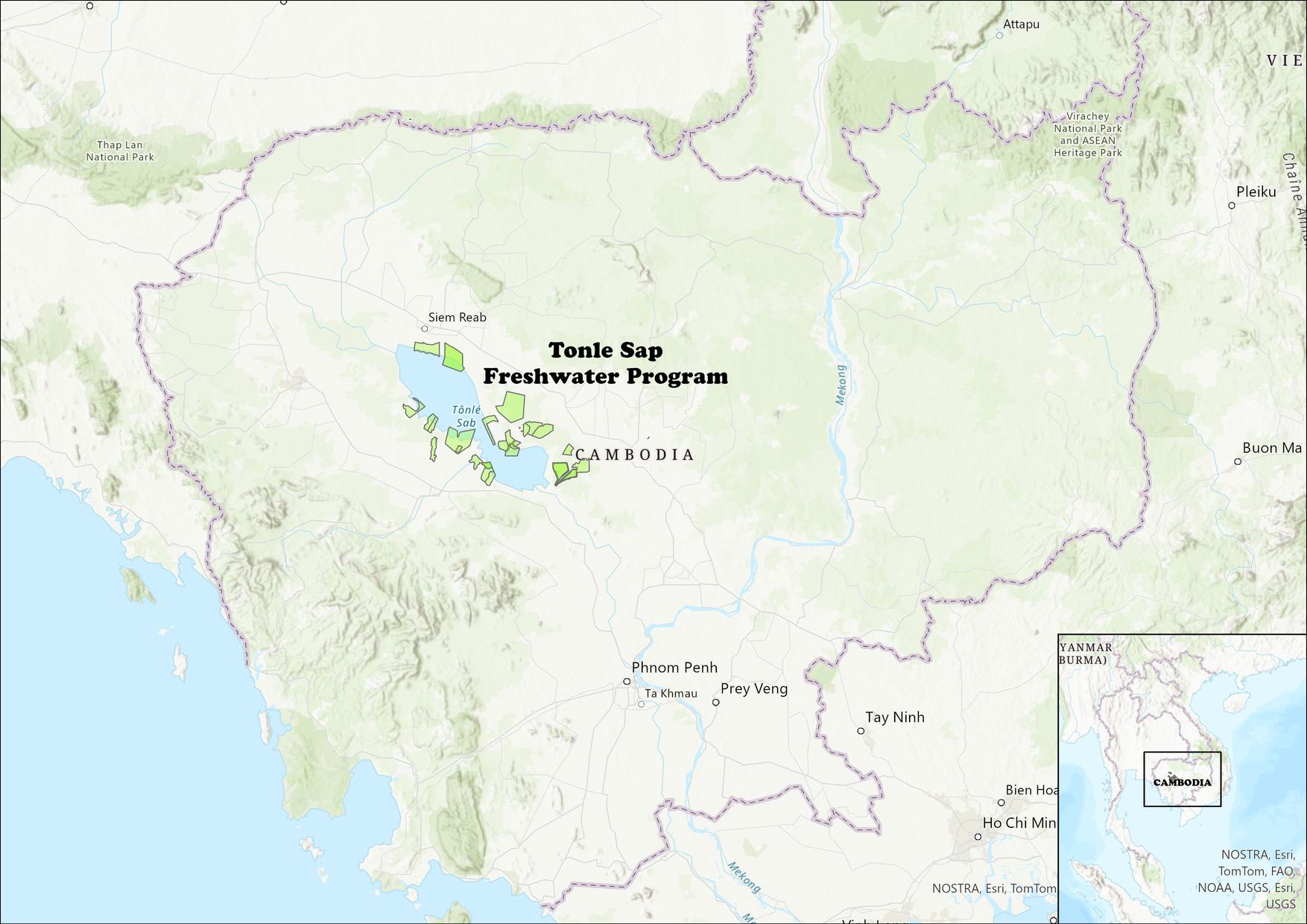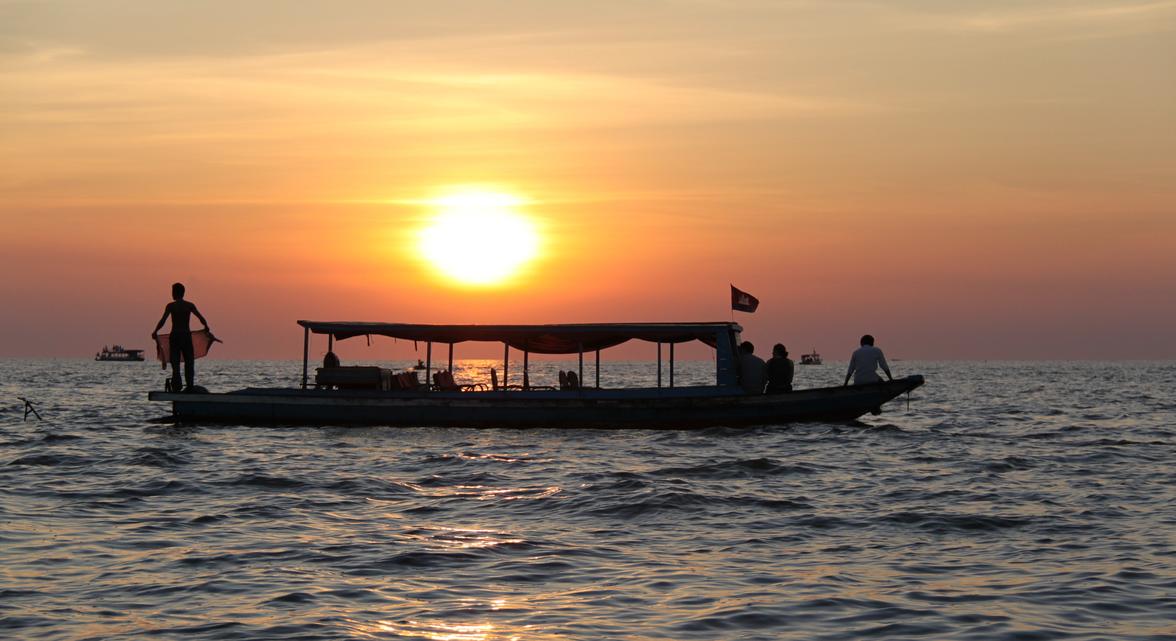
What are the challenges?
Climate change, hydropower dam development and inadequate protection measures, coupled with unsustainable practices including fishing, agriculture, logging, are severely straining the lake's resources.
These factors are exacerbating the state of poverty local communities, and if continued unchecked could threaten food and economic security for the nation.
Our role
Since 2008, Conservation International has been working to ensure that the Tonle Sap Lake and its floodplain remain a healthy freshwater ecosystem able to support Cambodia’s people, wildlife and economy. Together with partners, we offer alternative means of income that put less strain on natural resources, improve access to clean drinking water and expand scientific knowledge about the economic value of the Tonle Sap and the importance of protecting it.
Our Plan
Restoring essential ecosystems
Conservation International and partners continue to replant and protect flooded forests in key areas to increase wildlife habitat and improve fishery productivity. We also work with government and community ranger patrols to prevent illegal fishing and have installed artificial reefs in critically threatened habitats.
Sharing knowledge
We are providing key technical support to the Cambodian government on a variety of conservation issues. We continue to work with the Fisheries Administration to protect conservation and community fish access areas. We also host education evenings with the local communities to raise awareness about climate change's impacts and possible ways to mitigate these threats.
